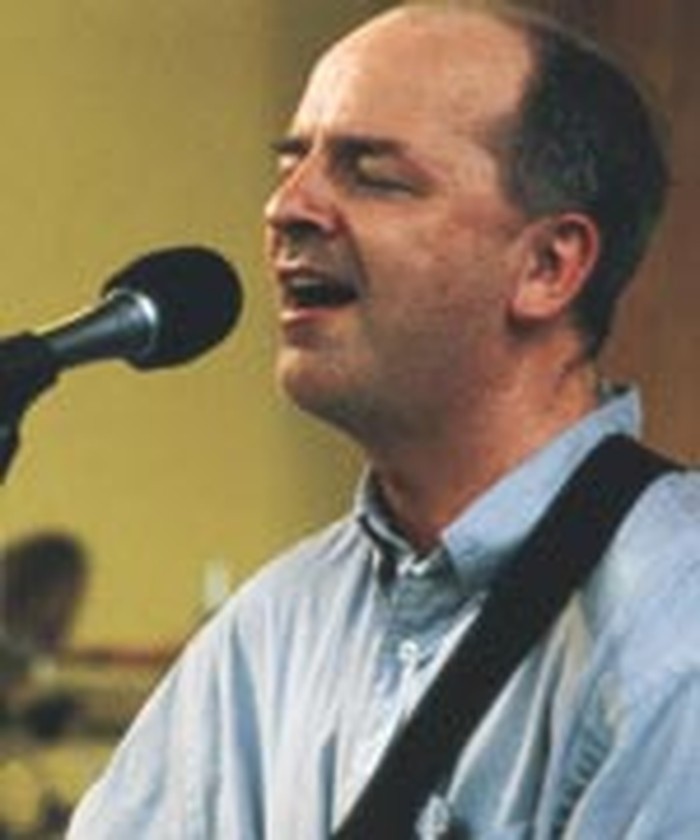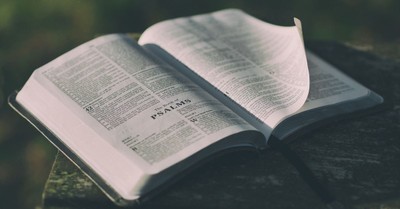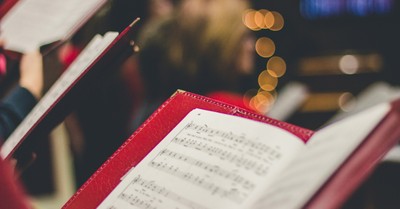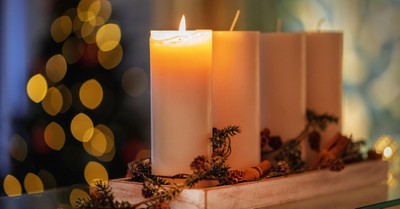10 Questions With: Robin Mark
- Melissa Riddle Online Editor
- Published Mar 10, 2006

S4W.com: How did you get started in Worship Ministry?
Robin Mark: I was part of a small Bible Study group back, would you believe, in 1984. I just realized that’s 20 years ago! Oh no! I was only 10 years old! [laughing]
Anyway, we used to have a rock ‘n’ roll band, a very poor quality rock ‘n’ roll band. And I was of no impress at all in worshiping. We were very late behind the world in terms of like the renewal movement, Vineyard, and all that. We were basically just getting into Graham Kendrick stuff at that time about 4 years after the English. And so the band came to a gracious and timely end, to be honest. Yes, a merciful end. It was mercy killing of the highest order. So, we stopped, and I began playing guitar and started to lead worship more in our small sort of house group. And I started to write the odd song. When you’ve got 13 or 14 people, you get a really quick response. If they don’t like it they just say ‘Yuk, that’s an awful song.’ Or they own it and sing it. And so that was really where it started. I had no interest or purpose other than just worshiping with the guys.
S4W.com:What is the greatest challenge you face in ministry at Christian Fellowship Church, there in Belfast?
Mark: The greatest challenge at the minute is that it’s a church that was born out of the renewal movement, an independent, non-denominational church with 800 members. What we do and what happened to us was radical worship, having a band a service that’s an hour and half long, a sermon that lasts half of an hour, not 10 minutes. All that stuff is so new, and we grew with it and it was exciting and all the gifts of the spirit, like words of prophecy, healing and stuff like that was all just so radical. Well now there’s a generation grown up in our church, and it’s not radical because it’s what they’re used to and I think that is the biggest challenge. The biggest challenge is praying. We can’t do anything about it, but pray like mad that a new generation will be inspired or suddenly catch that spark that God is a God that constantly changes. He’s still the same, but He brings us through change, and changes what we do and encourages us to change and make things dynamic. Just to get a generation to capture again the excitement that we had, and not to be a one or two-generation church, one that’s stuck in a pattern that was vibrant in the past.
S4W.com:Here in America, we talk about blended worship and the challenging of connecting with people from such diverse backgrounds. In Belfast, what kind of church traditions are you dealing with?
Mark: I’d say 95% or more are still, you know, a lot of the Catholic churches would still be in Vatican One; Vatican Two was sort of a revision of it. They’re still in the old style Mass. Lots of the Church of Ireland, which is the Anglican Church. Then there is the Presbyterian Church, which has the same structure of service that they’ve had for years. So there are very few new churches as such of any size. Ours is the second largest church in Belfast. The largest church is a big Pentecostal one.
S4W.com:Really? Because I figured the Catholic churches would be among the largest there.
Mark: Well they would be larger. The congregation size is typically 400 or 500. And there are a lot of churches…. So, our tradition is very traditional. We are unusual. A church like ours that has worship style like ours of that size is almost unique. There’s a couple in Dublin that are like ours, and some small Vineyard churches with 60 to 80 members. Nothing of the large super churches that you have in the U.S.
S4W.com:So are you guys are charting your own path in worship or trying to incorporate traditional elements or what?>/p>
Mark: We are [charting new territory], but our heart is for the unity of the body. We had Matt Redman and Paul Baloche over for a conference in February. And Matt, Paul and me we took an arena and we had 7,020 people come out. And that was the biggest, THE BIGGEST, Christian worship event in Ireland. And those people were from the church at large, so we try to incorporate the old and the new.
Mark: Because we are a religious country, getting people together on religious grounds, even getting people together in a Bible study, is very difficult. Getting them together under one preacher is impossible. Even getting them together to pray sometimes is difficult. But worship has this fantastic unifying effect. People want to come to worship. And, you know wherever unity is God commands a blessing, so that is our heart.
We got a letter from a Presbyterian minister after the event, because it was, for us 7,000 people was just astonishing. We never expected it. We had no idea. We knew our break-even point was about 2,500, and so that was our hope. So, 7,000 was like wow! So he wrote a letter, and he said look, churches and groups go through seasons in God’s favor not because they’re good or bad but because He’s just placed a mantle on you to do some stuff. He said, ‘It’s your season, and you have to do this stuff. You know it won’t last forever, you have to put on the events …to help bring about the unity of the body.’ And that’s where we feel we’re at. Not because we feel we’re in any way special, but because we’ve got to the point where God’s favor has just been placed on us for a season, and we really need to take advantage of that.
S4W.com: So, would you say that the unifying power of worship is one of the most profound lessons you’ve learned about worship over the last few years?
Yeah. It really is. I used to do seminars, and I would say the whole purpose of worship is pure sacrifice. Do not expect God to do anything in worship. He will, but don’t expect it. Don’t be coming together to worship God in a certain way so that he would do something. That’s not a sacrifice. The sacrifice of praise and worship is that you just give up. You lay it down and that’s it. You’re not seeking anything. And the thing is, of course, God heals in the midst of worship and touches lives and saves people.
We did a concert once and eight or nine people became Christians. Nobody gave a call but in the midst of worship people encountered God. And so, I never cease to be amazed. But the one radical thing for us, in the country that we come from, it’s that here’s something God is using to draw his people together. And it’s His thing. I think that says everything about the heart of God. Worship is the only thing that we can do, really, where we’re totally giving. Even in prayer, you know, you pray a bit for some other people and bless God then oh, by the way, can I have a new car. That’s just the way it is. In Bible study, you do it to learn and to build yourself up. So it’s just something about the heart of God. It takes worship, which is His thing. Our sacrifice to Him. And He turns it on its head and blesses us in it, which is fantastic. That is one of the most profound things that I’ve learned.
S4W.com:What do you think is the most common misunderstanding about worship in your church?
Mark: I suppose like every church it’s the idea that worship is about a certain style or approach. In other words, some people get there on Sunday morning, fold their arms and say ‘right, come on.’ Or leaving the church saying that the worship wasn’t very good this morning. And it’s a very common problem. And it’s one that churches all over the world cope with. But that’s probably the biggest thing. But overall, ours is a pretty good church actually, and there’s a lot of grace there, and they’ve been gracious to me and gracious to the other worship leaders that have come up. And I think that a lot of people have come to our church because of the worship and because of the teaching, and they’ve moved from other churches. So there is a fairly high level of knowledge that what worship is about.
S4W.com: Many Western churches miss the mark in that they see all this progress happening in worship and they attempt to follow what they see as a trend but there’s little teaching on what it means to worship. So, they can do it, musically speaking, but the people in the pew don’t understand what the Bible says about it. Is teaching about worship a priority at your church in Belfast?
Mark: Well yeah. Paul Reed, our pastor, speaks occasionally on worship. And I have a little bit of liberty to say little things in the midst of when I’m leading worship, as do some of the other ones, to just sort of keep people right. We probably should do more because you’re right, people come to church, and they say ‘Wow! Nice band, good singin.’ Well if that’s the only level they’re at, we’re in trouble, so we have to keep God in the way of that. We probably should do more.
S4W.com:And now for the desert island question: What are the 5 essentials you simply could not do without in worship ministry?
Mark: A team that keeps me humble is the first thing. Because when you come to Nashville and you’re getting an International Award, you can get really quite impressed by your own ego, which is a disaster. So, that’s one essential is guys that keep my feet right on the ground. The second essential may sound a bit sort of scooshy, but it’s my own family relationship. The family thing. It’s being in the day-to-day things with my wife and kids. The third thing is my guitar. I’m afraid I’m one of these people who cannot stand up in front of a church and not have a guitar to hold on to. I need it. The fourth thing is a body of believers that there’s a mutual love for. I always say to my guys when you stand up to lead worship in church, our church, if you don’t love the people you’re looking at, and they don’t love you; you’re in real trouble. If you stand up there and you want to do it to them and they’re sitting there going ‘Yeah, let’s see you do this,’ then it’s a disaster. So that’s the fourth thing. When you have people who love you, you have the allowance to make a complete and utter pelleck of yourself. Pelleck is an English word for idiot, nerd or something like that.
S4W.com:Actually, that’s usually one of my questions. Can you think of one particular instance when you made a complete idiot out of yourself?
Mark: Yeah, I got to number four there, but I’ll come back. No, four is good. No, we heard an Integrity track where they’d taken “I will worship with all of my heart” and they had a disco beat behind it. It went “ IIIIII Will Worship”. So, yeah, it was disco. So I said to my band, ‘Hey let’s do that, let’s try a disco sound.’ And they said ‘What?’ But I convinced them to try it, and it was just horrific. We got to the end, and I turned and looked at them and they were all going, ‘What in the world WAS that!?’
S4W.com: What makes a worship song congregationally friendly or acceptable?
Mark: Two things. One its singability. And there is actually a range of singability. And stuff that doesn’t rattle around too much is good. And stuff that doesn’t shift a whole octave. I mean, that can be great to listen to but hard to sing. When you’re singing low, and then you suddenly go high. That’s hard. The second thing is, I like songs that actually engage the brain. I think people like to sing a song where the melody and the music and the words draws something out of them. But those are the two main things. I think the range is so important and the engagement of the actual lyrics of the thing.
S4W.com:Tell me a little bit about Revival in Belfast II. First of all I’m curious to know why you feel Revival in Belfast, the first one resonated so much with people? And two, tell me a little bit about the new one.
Mark: Revival in Belfast was my first album with Integrity, and it took me by surprise actually. And it’s still one of their best selling albums, five years after. I think part of [its success] was because it was an expression of worship from a church in another part of the world. And the style is maybe a little different than what people are used to. But I think the key thing is that for some reason God was in it. I listen to albums, and I think those are fantastic, that album is great, that’s going to be a monster album people are going to love that, and it disappears without a trace. It’s just God’s hand on something that makes it good or bad. I think for sure there’s something about the heart of what we express, which isn’t the same as what you hear normally.
For Revival of Belfast II, we just went back to our church, pulled together the new songs we’d been singing. And it’s our church singing again. And actually, for those of you who are techno people, our church has a very steady acoustic reverberation, it’s about two seconds so as a congregational church, it only holds about 400, but it’s a great place to record because the sound of the congregation really comes out. And so when people are worshiping, you can capture it. So, we went to do that again and we think we have.
S4W.com: You also recorded the album Come Heal This Land.As an American who isn’t too well versed in Irish history, I’m curious to know in what areas in what ways do you feel Ireland is especially wounded?
Mark: All right. Wow. I’ll give you my honest answer to that. We have a division in our country. There’s a Northern part and a Southern part. The Southern part is mainly Catholic, and the Northern part is mainly, not by much, Protestant. The Northern part wanted to stay part of the United Kingdom, and the Southern part wanted to stay part of Ireland and be independent. So the Northern people would say we’ve been wounded by Irish terrorists. When we see news about Al Qaida, etc., we say ‘Well we have the same problem, but we couldn’t convince anybody.’ And everybody thought that our police force was some sort of paramilitary, mad organization when most of them are Christians. That sort of stuff.
So, then the Southern people, they see this land to the North as being like, what’s the word for when someone comes in and takes over? I’ve lost my train of thought. You know, a land where an invader has controlled it and stolen it from them and they want it back.. So they have that hurt and pain. And the consequence of that people in the North, particularly the Protestant people, when the South says ‘Oh it’s been terrible what England has done to us.’ We go, ‘Oh get a life. It’s hundreds of years ago. Forget it. People did terrible things back then.’
….So I’ve decided that I think we need to move on. I really do. When the peace process was working out, I got a word from the Lord, and it was from the book of Jeremiah. The verse says, ‘They that are left of the sword will find grace in the desert.’ Which basically means those that are left after the sword will find a place of rest. It’s a beautiful way of saying it. And I honestly think that Ireland needs to move on now and realize that we are in a place of grace. We are a mainly Christian country. We are arguing over theological niceties when Europe, a whole continent is dying and going to hell, if you want to be brutally frank about it. And we’re not doing a thing about it. I just think that we need to get over our wounding, bring it before God and say ‘Look, we were wounded but now we’re healed and we’ve got to speak to a wounded world.’ Of all the people that could speak to nations that are suffering from terrorism, we could do that. Of all the people that can speak to nations about having to overcome the anger and pain of years of conflict, we can do that. And we can also point out that it doesn’t go away and it’s always there. So there are a lot of things that we can bring to the world, and I think we need to do it.


















